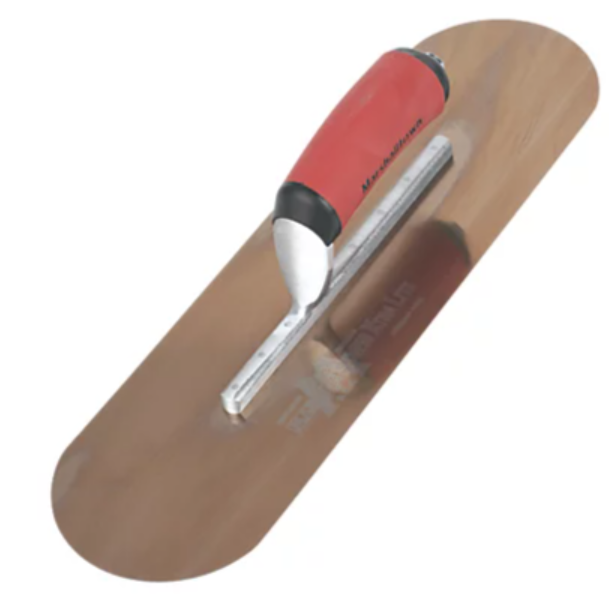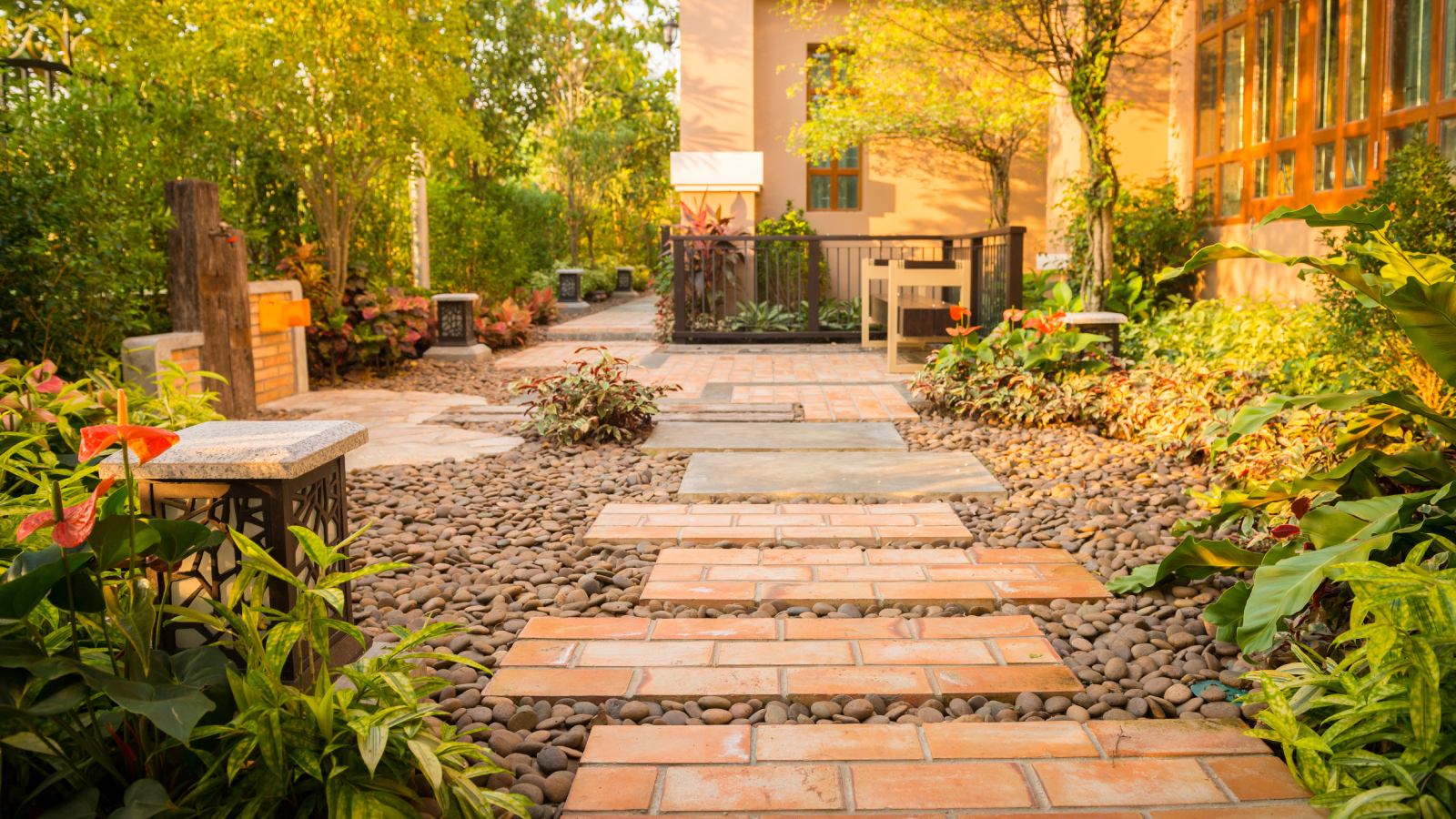How much space do you need for a swimming pool?
A pool is the dream of many householders, but there are many decisions to be made about size and use before the work can begin
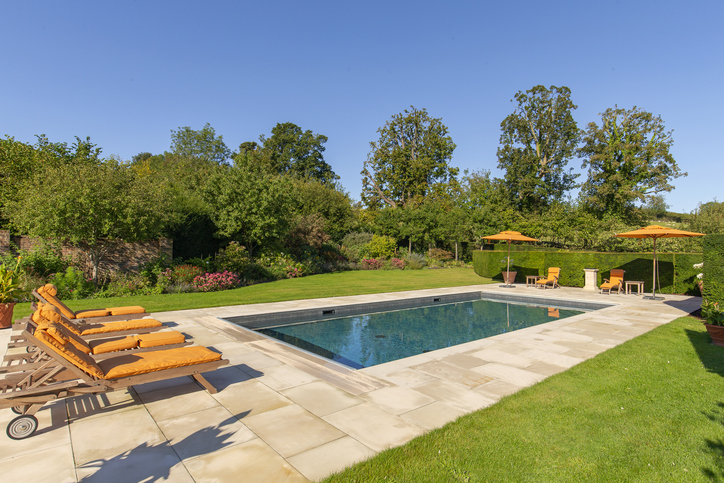
Swimming pools require a great deal of planning and a wide array of factors – particularly in relation to size – to consider before you can pull on your swimming costume and jump in.
Building a swimming pool is a far more involved process than simply marking out the area on your property and hiring a digger.
Homebuilding and renovating spoke to John Davis, owner and operational director at Springfield Steel Buildings, and construction expert Thomas Goodman at MyJobQuote.co.uk, a UK trades matching site, to lay out the space issues you need to think about.
How much space do you need for a swimming pool?
John says the area needed for a swimming pool typically amounts to around 25 - 60m², depending on its size and shape.
A smaller pool may only need about 25m², while larger pools often require 60m² or more.
For a basic small pool, you need to allow space for the pool itself, while also accounting for the surrounding deck area. However, the specific requirements may differ depending on local regulations and pool designs.

Construction and DIY aficionado John Davis is a seasoned professional in the realm of bespoke steel-framed buildings, boasting an extensive career marked by innovation and expertise. As the owner and operational director of Springfield Steel Buildings, he stands as a pioneering force in the industry as his visionary leadership has propels Springfield Steel Buildings to the forefront of the construction landscape, earning a reputation for delivering top-tier solutions.
Minimum size for a swimming pool
In terms of safety, a pool built for fun and splashing around should be three to four feet deep, while pools built for laps should be at least five.
John adds: “You need to be aware of any building control and planning requirements planning requirements in your area. The rules and guidelines can vary region-by-region, so it's important that you contact your local planning authorities to get the rules relating to property lines, structures and other features.
“These measures are in place to ensure compliance with safety and zoning regulations. You could face heavy penalties if you're found to be in breach of these parameters, so it's worth familiarising yourself with local guidelines before you get the ball rolling on your pool project.”
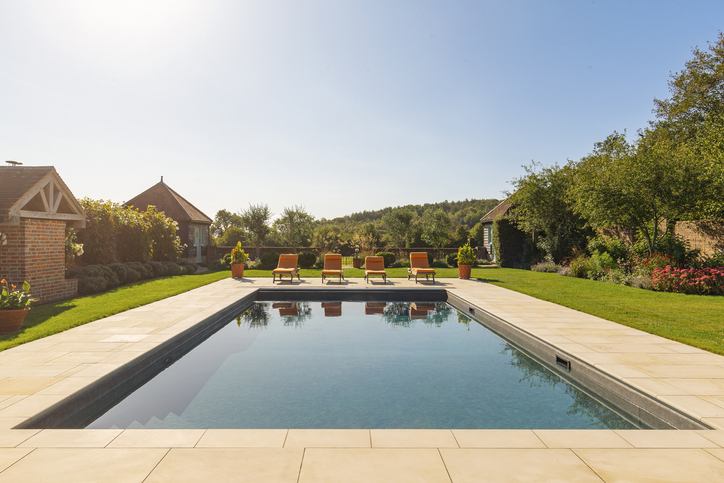
Comfortable sizes for a swimming pool
Thomas says that the space you need for a swimming pool depends on the type you choose and what you’re using it for.
“For instance, a pool that you’re using primarily for exercise is going to need to be bigger than one that’s simply for recreation or kids splashing about in,” he adds.
“If you’re intending to swim lengths, the minimum practical length is going to be 7m but 10m or 11m is better. And the most popular size of swimming pool for this purpose measures 11m x 4m.
“That said, you can reduce the space you need for exercise by going with a resistance pool. These produce a current for you to swim against, so you don’t need such a long pool.”

Thomas Goodman has worked as a property and construction expert for MyJobQuote for six years and has worked in the construction industry for over twenty years. Thomas continues to work on building projects, while also providing expert construction and property advice to industry professionals and DIY enthusiasts
Maximum size for a swimming pool
Thomas says costs rise as the size of the pool increases. He adds: “Realistically, a larger pool is going to need heating and covering and is therefore more likely to be classed by authorities as an indoor pool. This means you’ll need to consider planning rules and building regulations.
“The larger the swimming pool you have the more you’ll need to spend on filtration systems, cleaning, chemicals and maintenance.
“You’re also likely to need heating, which also means thinking about insulation, ventilation and covers to make your pool safe and efficient. So, the smaller the size of your pool, the more cost-effective it’ll be to run.”
Owners of smaller pools, such as those under 15ft, can use heaters like the Bestway Swimming Pool Water Heater (B&Q, £153.99) or you could consider your renewable options with solar panels for swimming pools.
Space around a swimming pool
In-ground pools ideally need some form of edging all the way around and the ideal width for this is between 1.2m and 2m, Thomas says, and this will add to the amount of space you need.
He adds: “You also need to bear in mind that things like filter systems and heaters can also take up space. Plus, if you’re building a swimming pool from a kit, you’ll also be constrained by the sizes available on the market.
“This means that you will typically need between 66m² and 120m² of space for a swimming pool, unless you go with a more compact solution.”
Shop pool necessities
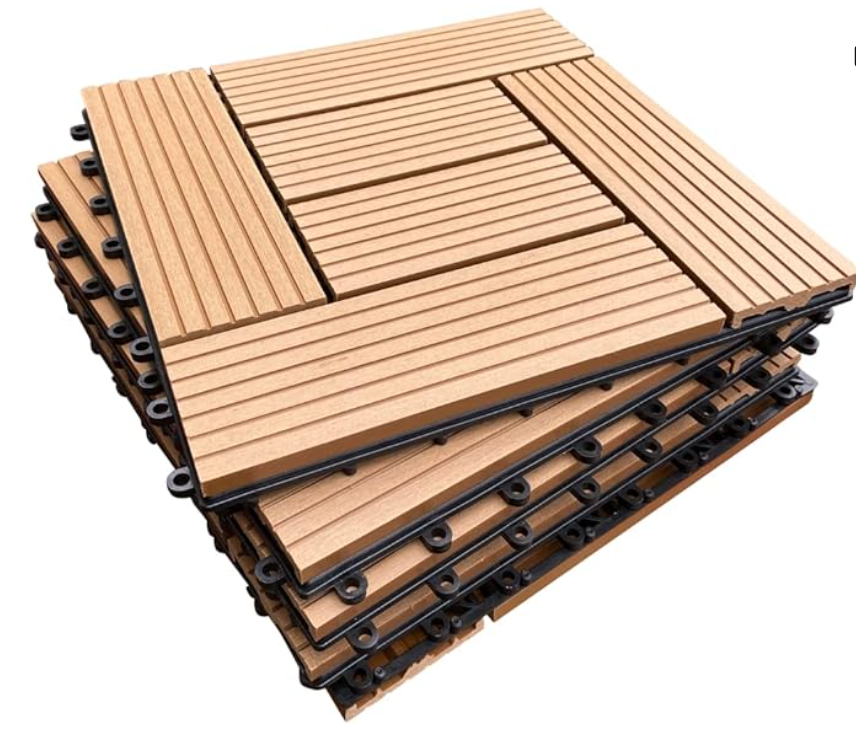
Composite deck tiles are made from wood fibres and recycled plastic and require very little maintenance
FAQs
What is the average size of a swimming pool?
8m x 3m is the average size of a domestic or garden swimming pool but 11m x 4m, 10m x 5m and 6m x 3m are just some of the sizes that are popular with UK homeowners.
What building control or planning requirements should homeowners be aware of?
If you’re building an outdoor swimming pool in your garden you shouldn’t need planning permission. However, it’s always wise to check with your local authority first, just to be sure. This is particularly important if your home is listed or sits in a Conservation Area, National Park or on Greenbelt land.
Even if you build an indoor or covered swimming pool, it’s likely to fall under Permitted Development rules unless you’ve already extended your home.
However, unless you apply for planning permission, you can only house it in a single-storey building and that mustn’t take up more than 50% of your garden.
If you do plan to heat or cover your pool, then it will need to comply with building regulations concerning heating, ventilation and insulation. It’s also worth discussing your plans with neighbours first, to avoid potential conflict.
As with any major construction project, it may be wise for homeowners to contact a specialist architect or building company to guide them through the process of planning and constructing a pool. Happy swimming!
Get the Homebuilding & Renovating Newsletter
Bring your dream home to life with expert advice, how to guides and design inspiration. Sign up for our newsletter and get two free tickets to a Homebuilding & Renovating Show near you.
Sam is based in Coventry and has been a news reporter for nearly 20 years. His work has featured in the Mirror, The Sun, MailOnline, the Independent, and news outlets throughout the world. As a copywriter, he has written for clients as diverse as Saint-Gobain, Michelin, Halfords Autocentre, Great British Heating, and Irwin Industrial Tools. During the pandemic, he converted a van into a mini-camper and is currently planning to convert his shed into an office and Star Wars shrine.
